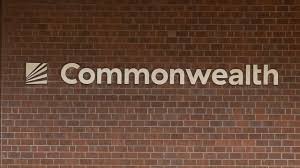
Osaic Rocked by $1.5B Defection: Osaic rocked by $1.5 billion defection is not just another industry headline—it marks a critical inflection point in the independent financial advisory space. On March 31, 2025, the Connecticut-based Angelo Planning Group, led by industry veteran Ralph Angelo, left Osaic—formerly known as Advisor Group—with an eye-popping $1.5 billion in client assets. Their destination? Commonwealth Financial Network. And here’s the twist: this move happened on the exact same day Commonwealth announced it was being acquired by LPL Financial for $2.7 billion.
The move has sparked intense discussion among advisors, firm leaders, and investors. So what caused this elite team to jump ship? What does this mean for Osaic—and for financial professionals trying to decide where to plant their flag? Let’s walk through it in plain, practical terms, without losing sight of the big picture.
Osaic Rocked by $1.5B Defection
The $1.5 billion defection of Ralph Angelo’s team from Osaic to Commonwealth is about more than numbers—it’s about trust, culture, and the advisor-client relationship. It signals that advisors are increasingly unwilling to tolerate disruption, delays, and diminishing service just for the sake of scale. With LPL stepping in as Commonwealth’s new parent, all eyes are on whether they can preserve what made Commonwealth special—while giving advisors more muscle. For financial professionals weighing their next move, now’s the time to look inward and ask: Is my current firm making me better—or just busier?
| Key Insight | Details |
|---|---|
| Defecting Team | Angelo Planning Group (30 advisors) |
| Assets in Transition | $1.5 Billion |
| Old Firm | Osaic (formerly Advisor Group) |
| New Firm | Commonwealth Financial Network |
| Commonwealth Sale Date | March 31, 2025 |
| Acquirer | LPL Financial |
| Osaic Advisor Count | ~11,600 |
| LPL Advisor Count | ~30,000 |
| LPL Total Client Assets | $1.8 Trillion |
| Link | Commonwealth.com |
Why This Move Matters?
A Perfectly Timed Exit
Timing is everything, especially in financial services. The Angelo team didn’t just leave on a random day—they chose the exact moment Commonwealth was bought by LPL. Ralph Angelo, who has worked with both Commonwealth and LPL in the past, saw the acquisition not as a risk, but as a reunion with a trusted partner.
In his words: “If we’re going to have a parent company, I’d want it to be LPL. We’ve worked with them before, we know what to expect, and that gives us confidence.”
Osaic’s Ambitious—but Turbulent—Transformation
To understand why the Angelo team left, we need to understand what Osaic is trying to do. Formed through a consolidation of several broker-dealers, Osaic has aggressively pushed toward a single platform, single brand model—a move it calls “Journey to One.”
That journey includes:
- The acquisition of Lincoln Financial’s wealth management arm in 2023
- The integration of eight legacy firms including FSC Securities, Royal Alliance, and SagePoint
- Migrating more than 11,600 financial advisors to one operating system
That’s a tall order.
According to Osaic CEO Jamie Price, the firm is about “85–90% complete” with the tech and platform integration as of Q2 2025. But inside the advisor community, it hasn’t been smooth sailing.
On forums like Reddit and professional networks, advisors have raised issues such as:
- Frequent tech outages
- Delayed back-office support
- Compliance red tape
- Lack of customized service
Many advisors feel like they’re being asked to “sacrifice personal service for scale.”
Commonwealth’s Reputation for Advisor-First Service
Commonwealth Financial Network, by contrast, has long held a reputation for boutique service with institutional strength. They’re not trying to be the biggest—they’re trying to be the most reliable. With around 2,900 advisors and $285–344 billion in assets, they’ve been the quiet achiever in the independent broker-dealer world.
Angelo called them “the gold standard” for service. That matters when you’re working with high-net-worth clients who expect quick answers, seamless tech, and personalized attention.

Why More Advisors Are Watching Closely?
Advisors Are Getting Fatigue from M&A Frenzy
If you’ve been in this industry more than a minute, you know consolidation is the name of the game. Everyone’s acquiring everyone. But that doesn’t mean every advisor likes it. Each acquisition adds a layer of disruption—new compliance teams, new tech, new paperwork.
Between 2023 and 2025, Osaic alone saw over $6 billion in client assets walk out the door:
- Academy Financial: $4 billion
- PFG Advisors: $1 billion
- Salient Wealth and others: $1+ billion
Add Angelo’s $1.5 billion, and you have a pattern.
Commonwealth’s LPL Deal: Good or Bad?
Now, Commonwealth’s deal with LPL is seen by many as a potential risk—but Ralph Angelo’s team actually saw it as a reason to join. Why?
Because:
- LPL is public, profitable, and transparent
- Their “negative consent” approach to account transitions reduces paperwork
- They’ve promised to let Commonwealth operate as a semi-autonomous brand
That last point is crucial. Many advisors are nervous that Commonwealth will “go corporate,” losing its high-touch appeal. But LPL insists it’s learned from past acquisitions and won’t rush to rebrand or overhaul what’s working.
How Advisors Should Think About Their Next Move As Osaic Rocked by $1.5B Defection
Step 1: Evaluate Your Current Platform
Ask yourself:
- Is my firm helping me serve clients better—or getting in the way?
- How often is tech failing?
- Do I feel supported—or like just another number?
If you’re spending more time troubleshooting than advising, it may be time to explore other options.
Step 2: Understand the Trade-Offs
Osaic offers scale, national marketing, and shared services. Commonwealth offers concierge-level service and boutique culture. LPL offers powerful tools and business development infrastructure.
Each has a price. Commonwealth may cost more in tech fees. LPL is bigger and more corporate. Osaic is still finding its post-merger identity.
Step 3: Talk to Others Who’ve Made the Move
One of the best things you can do? Call advisors who’ve already made the switch. Ask them about the transition:
- How long did it take?
- How many clients came over?
- Did revenue drop or rise?
Real-world feedback is gold.
You Won’t Believe How Much It Really Costs to Live Comfortably in Virginia and Maryland
Feeling the Squeeze? 10 Smart Financial Moves to Survive Economic Uncertainty
8 Proven Strategies to Stay Financially Afloat When Times Get Tough
Common Questions (FAQs)
Q: Is this the largest team to leave Osaic?
Yes, at $1.5 billion, the Angelo Planning Group is the largest single-team departure to date.
Q: Why did the team choose Commonwealth even though it was being acquired?
They had previously worked with both firms and trusted the service levels. LPL’s acquisition was seen as an added benefit, not a risk.
Q: How long does it take to transition clients?
On average, 2–4 months. Angelo’s team took about three months using e-signatures and streamlined processes.
Q: Is “negative consent” legal and ethical?
Yes. It’s a standard method for bulk account transfers that limits client disruption. Clients are notified and given the chance to object, but otherwise, their accounts move automatically.
Q: Will more teams leave Osaic?
That depends. If the platform stabilizes by 2026 as promised, attrition may slow. But if more tech issues arise, expect continued advisor flight.











